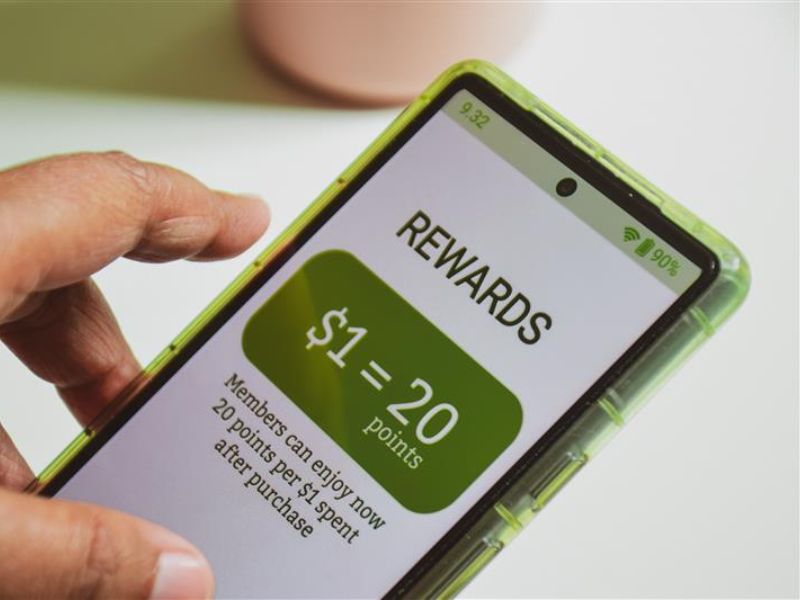.jpg)
Value-Based Marketing vs. Deal Marketing in the Restaurant Industry

While the current economy is tough, many people still eat outside of the home 4+ times per week. Some restaurant visits may be determined by cost, while others are considered a “must visit” based on the chain's delicious food.
In the competitive world of restaurants, marketing strategies play a crucial role in attracting and retaining customers. Two popular approaches are value-based marketing and deal marketing. Each has its unique advantages and disadvantages, and understanding these can help restaurant owners make informed decisions about their marketing strategies.
Value-Based Marketing
Chipotle, Starbucks, and Panera are chains that employ value-based strategies. They prioritize quality ingredients and set their prices accordingly, generally avoiding discounts.
Pros:
· Brand Building Loyalty: Value-based marketing focuses on creating a strong brand identity and emotional connection with customers. By emphasizing the quality of food, exceptional service, and unique dining experiences, restaurants can build a loyal customer base that values the brand beyond just the price.
· Long-Term Customer Relationships: This approach fosters relationships with customers. When customers feel a personal connection to a restaurant, they are more likely to return and recommend it to others.
· Higher Perceived Value: By highlighting the unique aspects of the restaurant, such as locally sourced ingredients, sustainable practices, or a distinctive ambiance, value-based marketing can enhance the perceived value of the dining experience. This can justify higher prices and attract customers who are willing to pay more for quality.
· Differentiation: In a crowded market, value-based marketing helps restaurants stand out. By focusing on what makes the restaurant unique, it can differentiate itself from competitors who may rely solely on price-based promotions.
Cons:
· Time-Consuming: Developing a strong brand identity and building customer relationships takes time. Value-based marketing requires consistent effort and may not yield immediate results, which can be challenging for new or struggling restaurants.
· Higher Costs: Investing in high-quality ingredients, exceptional service, and unique experiences can be costly. Restaurants may need to allocate more resources to maintain the standards that support their value-based marketing efforts.
· Market Perceptions: If not executed well, value-based marketing can come across as out of touch with the target audience. It’s essential to ensure that the brand message resonates with customers and aligns with their values and preferences.
Deal Marketing
McDonald’s “$1 $2 $3 Dollar Menu”, “Endless Apps” at TGI Fridays, and the “Never Ending Pasta Bowl” at Olive Garden are strong examples of how chains are discounting to drive awareness and store traffic.
Pros:
· Immediate Results: Deal marketing, which includes promotions, discounts, and special offers, can drive immediate traffic to the restaurant. These tactics are effective in attracting new customers and boosting sales during slow periods.
· Attracting Price-Sensitive Customers: Deals and discounts appeal to price-sensitive customers who may not otherwise visit the restaurant. This can help increase foot traffic and introduce the restaurant to a broader audience.
· Clear Metrics: The success of deal marketing campaigns can be easily measured through metrics such as redemption rates, increased sales, and customer feedback. This allows restaurant owners to assess the effectiveness of their promotions and make data-driven decisions.
· Flexibility: Deal marketing offers flexibility in terms of timing and scope. Restaurants can tailor promotions to specific days, times, or customer segments, allowing for targeted marketing efforts that address specific business needs.
Cons
· Eroding Profit Margins: Frequent discounts and promotions can erode profit margins. While deal marketing can drive short-term sales, it may not be sustainable in the long run if it significantly reduces profitability.
· Customer Expectations: Relying heavily on deal marketing can create an expectation among customers for constant discounts. This can make it challenging to maintain regular pricing and may devalue the restaurant’s offerings in the eyes of customers.
· Brand Perceptions: Overuse of deal marketing can negatively impact the restaurant’s brand perception. Customers may perceive the restaurant as a budget option rather than a place that offers quality and value, which can be detrimental to long-term brand building.
· Short-Term Focus: Deal marketing tends to focus on short-term gains rather than long-term customer relationships. While it can drive immediate sales, it may not contribute to building a loyal customer base that values the restaurant beyond its discounts.
Balancing Strategies for Sustainable Growth
Both value-based marketing and deal marketing have their place in the restaurant industry. The key is to strike a balance between the two approaches. Value-based marketing can help build a strong brand and foster long-term customer loyalty, while deal marketing can drive immediate traffic and attract new customers.
By understanding the pros and cons of each strategy, restaurant owners can develop a comprehensive marketing plan that leverages the strengths of both approaches to achieve sustainable growth and success.




